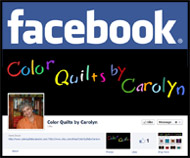Four Patch
1945.
Second World War—
a night of truce,
her womb houses a wound,
shrapnel from a time bomb.
Her husband walks to work
at Chevy, or was it Ford?—
penniless on the graveyard shift
emptied by soldiers.
Hemorrhaging after afterbirth,
as she rests her strength sieves,
sandbagged, a one-minute egg timer.
Unable to hold, nurse, change,
her husband pokes holes in her armor,
drills her on her ailments,
demotes her to infantry,
his manhood regimental, air-tight:
he’ll marshal the toddler boy.
Genealogic skirmish in utero survived,
Baby Girl stares at her mother
with her blind eye, cries with her good.
Coda: 1949.
Hysterical from a backroom abortion
her husband never forgave,
then another baby (girl):
she cut the whole thing out.
1954.
Delicately faceted though certain
in your dainty hands, Mama, barbs
too slight to catch the sun’s glint
—indiscernible— except
each night when I squeeze the cloth
that wipes clear my tears
red swirls to the bottom of the washbowl.
Mama, why are you always angry,
& why do you hide
behind newspapers & mags
& when I seek say go away
& read a book but the girls in the books
aren’t colored like me, Mama,
& the girls in my school are white, too, Mama,
& the dark girls on my street say I’m an e-light, Mama,
& my little sister is too little, Mama,
& my only best friend brother is away, away, away, away,
& the man by the pool hall follows me
with his eyes & I get scared, Mama,
when I watch TV
Words screamed in dreams
evaporate.
Cool morning sun.
1963.
In white and black Kodak snaps
placed in a keepbook I see a child
I do not know doing what I never did
in vignettes impromptu or posed, matte
cut-outs on glossy 3 x 5 or 4 x 6 rectangles,
scrap children trapped at different stages
with angled features recognizable
as my own curl from black bound
reconstruction paper, palpable apparitions,
fleshless stick figures with flawless skin,
gray-area-me invisible
as hands holding
tethers to hang a marionette.
Daddy, who knew Mason & Dixon well,
forbade me to cross the line.
I went to camp
for the summer
Bryn Afon in Rhinelander, Wisc.
to board scrub menstrual panties,
hot press blouses, undies, shorts & skirts
for little white princesses
who taught me what my mother had failed:
how to be a proper colored woman.
2001.
If on bits of old childhood cloth
again I could revel in primary colors,
trace with one finger the bias
on geometric, floral or animal prints,
snip frayed edges and worn spots, unblock
and square recollections, cut bolts
of fabrications into confetti or ribbons
to toss at a parade, add sampler swatches,
magenta, ocher, mauve,
scissor, press, piece, baste and sew—
a pattern of remembrance, as in a quilt,
might emerge, hand stitches binding
touchable memories together from scraps
of my hurt and snippets of your pain, Mama,
made textural, a textile picture book story.
And if we found a bled spot on the cloth
I could ask you, Mama, you knew I was hurt?
and you would answer, Like you were my blood,
patchwork framed, bordered black on white.
Carolyn Beard Whitlow
--from Vanished, 2006

